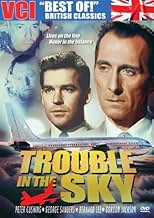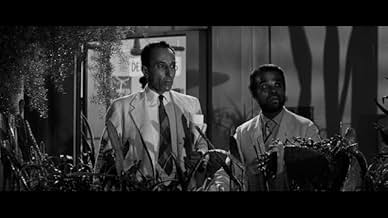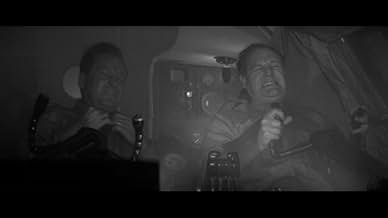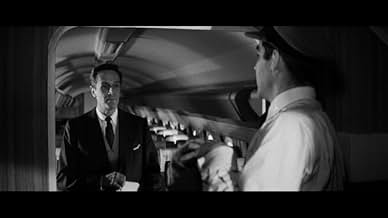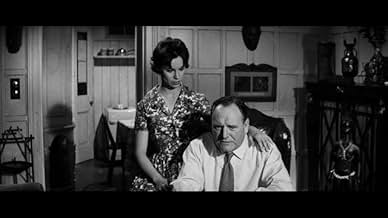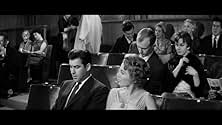Airline pilot Bernard Lee is downgraded for 'pilot error', and eventually reinstated at full rating. His daughter, Elizabeth Seal, knows him for a by-the-book sort of man and puts a bug in the ear of pilot tester Michael Craig. He begins to suspect that the problem lies not in the pilot, but in the new jet plane; the company that manufactures it prefers to blame the man, rather than lose out in a hotly contested, lucrative market.
The movie is suggested by some issues in the De Havilland comet, the first commercial jet liner, in the early 1950s. Jet aviation was a hot topic for the movies, and NO HIGHWAYS IN THE SKY was on the film makers' minds as a likely model. All of the pilots start out being by-the-book, but their individual characters, both as men and pilots, come gradually to the fore, with Gordon Jackson (whose character is called, ineviltably, 'Jock') speaking offhandedly of instinct. In the meantime, we are confronted by everyone except Craif and Miss Seal, being walking avatars of professional probity, from George Sanders, who asks the correct questions at hearings, to Peter Cushing , who demands a retest of Lee .... and who is shocked to learn that he may have been guilty of a near-accident .... missed, like many, it is suggested, by sheer luck.
It's interesting to see in the cast so many actors who spent their careers playing villains. Instead they are tightly repressed. It's an interesting, coolly intellectualized movie that pits man and experience against the sleek, mechanized world we were moving into in the 1950s. The only strike against it is its lack of overt excitement around a now outmoded tecnology. Perhaps the modern audience would find it as relevant as a movie about steam automobiles that keep exploding. On the other hand, recent news about the Boeing 737 may make it telling.

